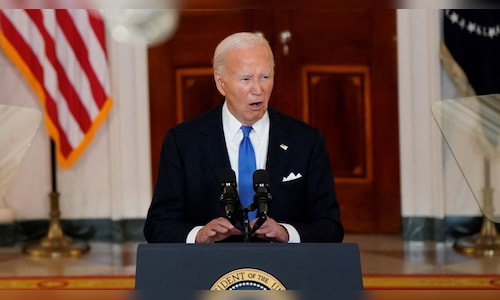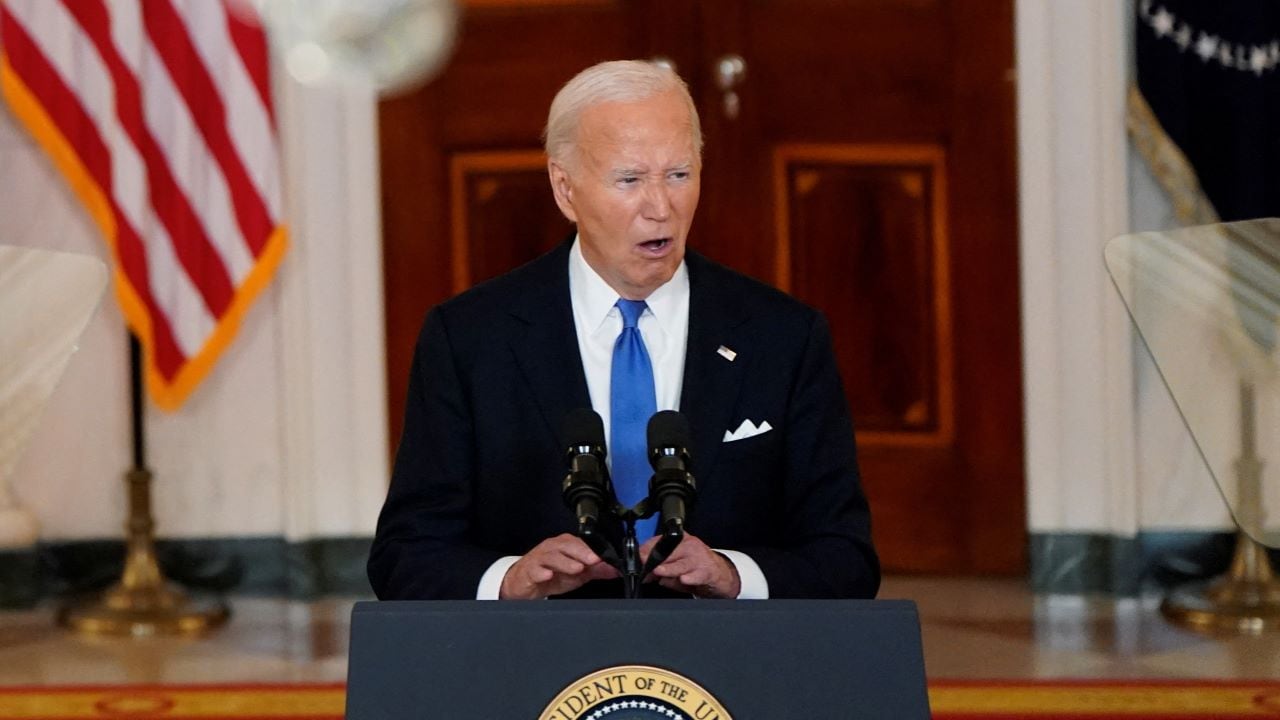

Speaking to CNBC-TV18, Damon accused the US of either failing to grasp the on-ground realities in Gaza or, worse, deliberately allowing Israel to act with impunity.
“Frankly, they are doing as abysmally as they have been doing all along,” Damon stated. “There’s no way you spend even a day in Gaza and walk away thinking this is self-defence. The bombs being dropped and the continuous obstruction of humanitarian aid paint a different picture entirely.”
Damon emphasised that the people of Gaza are desperate for peace and an end to violence but remain caught in an escalating conflict that the US could influence but chooses not to.
Beyond Gaza, Damon’s criticism extended to decades of US involvement in the Middle East. She pointed out the region’s deep mistrust of American intentions, citing historical examples like the Iraq War and the US’s consistent support for Israel as cornerstones of a policy that has fostered scepticism.
“This is not a region that trusts the United States, nor does it want the US guiding its future,” Damon remarked, adding that attempts by past administrations, whether Democratic or Republican, have often resulted in disastrous outcomes.
Edited Excerpt:
Q: How do you think the Biden administration is doing in its final phase and the last-ditch attempt by the Biden administration to restore peace and normalcy in the Middle East?
Damon: Frankly, they are doing as abysmally as they have been doing all along, especially when it comes to what has transpired in Gaza, because either the Biden administration is unwilling to see reality on the ground or, and this is perhaps even worse, willing to allow Israel quite literally to get away with murder.
There is no way that you spend any amount of time in Gaza. I was there for a month, and it was my fourth trip on a humanitarian mission with my charity. There’s no way you spend even a day in Gaza and walk away thinking that this is self-defence. And that’s in the size of the bombs that are being dropped, the locations that they’re being dropped on, but also in humanitarian organisations continuously and consistently being blocked by Israel from delivering aid. Hamas is not stealing the aid.
All Gazans want right now is for this to end. And yet the US, despite its ability to, in theory, put pressure on Israel, has been unwilling or unable to do so.
When it comes to the broader region, you have to realise that this is a region that is justifiably extraordinarily sceptical when it comes to US intentions. One needs to turn to the war in Iraq, even before that. This is not a region that trusts the United States, and this is not a region that necessarily wants the United States to be guiding a way forward.
When it specifically comes to what’s been happening in Syria, interestingly, when incoming President Donald Trump put out his tweet saying that his Syria strategy was going to be to stay out of it, I was actually with a number of very active Syrian opposition members, very active in the political circles. And their first reaction to that was, thank God, we do not want the US involved in our business.
Q: Do you feel that the Trump administration may be better at handling things as Trump has been signalling and messaging that he does not want to get involved in more wars in the Middle East? Syria is not our business. Do you think that will put the US in a better position?
Damon: Not necessarily. We need to remember that whether it’s a Republican administration or a Democratic administration, US policy towards the Middle East does not change. And the central cornerstone of US policy in the Middle East has been supporting Israel no matter what. So, in that sense, there isn’t a lot of optimism that things will change. Plus, we have to remember what Donald Trump did in his first term in office, which set off thunderstorms across the region when he moved the US embassy from Tel Aviv to Jerusalem. But at the same time, when it comes to countries like Syria, for example, there is perhaps a sense of relief that the US is not going to at least attempt to meddle in Syria’s internal affairs because all of its past attempts have effectively fallen flat on their face. And, again, it goes back to this reality where US intentions are not trusted, US actions are not trusted, and very few who actually observe the region and know it well believe that the US truly has a rich enough understanding of how the dynamics here work to be able to take the right kinds of decisions. I mean, if we look at Iraq, it’s a clear-cut example of what happens when America is in charge.
Q: What, according to you, led to the fall of the Assad regime in Syria? And how can the situation in Syria further complicate matters in the Middle East?
Damon: I have been covering Syria since 2011, since the get-go, and the speed with which the rebels were able to take over, I mean, it shocked me, just like everybody else. And I think it’s a combination of things. First of all, many lessons have been learned over the last 13 years, militarily speaking, when it comes to these rebel forces, and there was an awareness that this cannot just be a one-faction offensive. Yes, it was led by Hayat Tahrir al-Sham (HTS), but this was definitely coordinated. They had joint operation rooms, and as more rebel entities joined in the fight, they also continued absorbing them into this coordinated mechanism.
The other reality is that Iran significantly weakened, obviously highly focused, losing its foothold with Hamas, losing its foothold in Lebanon with Hezbollah, and numerous Israeli strikes against Iran. But the key in all of this, though, is not necessarily Iran, it’s Russia. What really stopped the rebels from taking over back in 2012, 2013, was how Russia dominated the skies, and Russia did not do that this time. Russia has been highly preoccupied with Ukraine, but there’s also a lot of speculation as to whether or not a deal was cut. I sense that once the rebels pushed through, quickly took over Aleppo, and began moving towards Hama and Homs, that is probably the moment when a deal would have been cut between Russia and rebel forces.
Remember, Russia’s key interest in Syria is not necessarily propping up the regime of Bashar al-Assad but rather, wanting to maintain its foothold in the Middle East. So that’s going to be something quite interesting to watch. We also need to remember that what we’re looking at right now is a much more politically savvy opposition, whether the opposition inside Syria or opposition members outside Syria who continuously have been working and planning for this day after. And so we have seen quite a bit of maturity in actions taken until now. Not to forget also that Syrians have been watching what happened in Iraq, they’ve been watching what happened in Libya, and those lessons have been learned as well.
Watch the accompanying video for the entire conversation.



